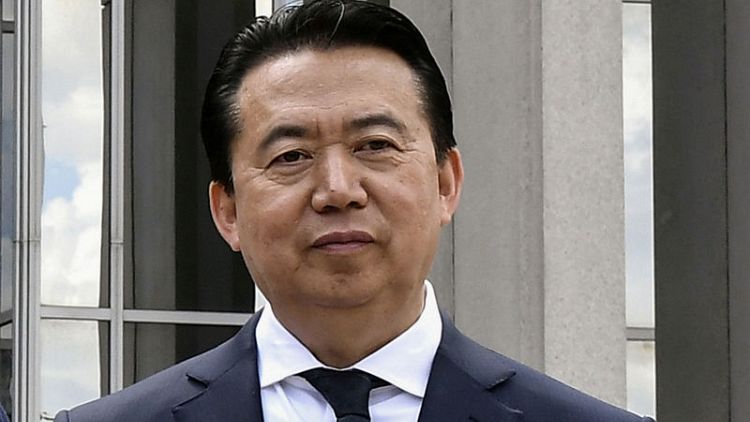BEIJING (Reuters) - Former Interpol chief Meng Hongwei admitted his guilt during a court hearing on Thursday after Chinese prosecutors accused him of taking 14.5 million yuan (1.66 million pounds) in bribes, state media said.
Interpol, the global police coordination agency based in France, last October said Meng had resigned as its president, days after his wife reported him missing after he travelled back to his home country of China.
In March, the ruling Communist Party said its investigation into Meng found he spent "lavish" amounts of state funds, abused his power and refused to follow party decisions.
"Meng Hongwei made final remarks, and admitted guilt and expressed remorse to the court," the official People's Daily said of the hearing.
The paper added that his alleged crimes in various posts, including when he was deputy minister of public security and head of China's coast guard, went back to 2005.
The court, in the northern city of Tianjin, will announce its verdict at a later date, it said.
It is not clear who Meng's lawyer is and it was not possible to reach him or a legal representative for comment. Chinese courts are tightly controlled by the Communist Party, and Meng is almost certain to be found guilty.
His wife, who has been granted asylum in France, has said the charges against him are politically motivated.
Meng became Interpol president in late 2016 as China widened its bid to secure leadership posts in international organisations.
His appointment prompted concern at the time from rights groups that China might try to leverage his position to pursue dissidents abroad.
President Xi Jinping has presided over a sweeping corruption crackdown since coming to power in 2012, vowing to target both "tigers" and "flies", a reference to elite officials and ordinary bureaucrats.
The campaign has led to the jailing or punishment of thousands of officials and brought down dozens of senior party and military officials.
Beyond graft issues, the anti-corruption effort has taken aim at those who express doubt in public about party policies or are found lacking in political loyalty.
China has rebuffed criticism that the campaign is as much about settling political scores as about stamping out criminal acts.
(Reporting by Michael Martina and Ben Blanchard; Editing by Robert Birsel and Michael Perry)
